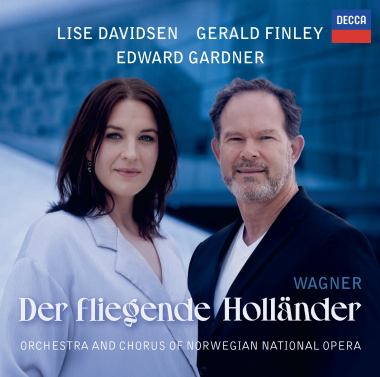
An extraordinary new Decca recording of Der fliegende Holländer (The Flying Dutchman), drawn from two nights of live performances in Norway’s Oslo Opera House late last August, meets the work’s every demand, including those of a nonmusical nature.
The first opera that fully showcased Richard Wagner’s manifold strengths as a composer-librettist, Dutchman has always been a problematic opera. Not for the music, which is frequently exciting and often glorious, but for the story. The female protagonist, Senta, is obsessed with the myth of the Flying Dutchman, and when he appears before her she’s so consumed by her fantasy that she becomes the first of Wagner’s many wigged-out heroines to sacrifice herself for a man.

In a recent performance I attended at the Staatsoper Berlin, Senta was portrayed by an admired local favorite whose first act was the epitome of every Wagner hater’s screeching soprano caricature. Only an Erik who was equally unbalanced could possibly have loved this woman, and only a truly desperate Dutchman could have imagined her as his salvation.
Contrast that with what Decca presents in this marvelous release, with Edward Gardner conducting the Chorus and Orchestra of the Norwegian National Opera and a superb cast headed by Lise Davidsen (Senta) and Gerald Finley (The Dutchman). Eschewing the crazy woman approach, Davidsen and Finley portray their characters with the greatest possible sympathy. Here, Senta seems truly dedicated to the ideal of redemption through love and sacrifice, and the Dutchman assumes human proportions in the depth of his suffering and sincere longing for love. If the dramatic result isn’t entirely convincing, the responsibility lies with Wagner, not with Gardner and crew.
Davidsen is in superb voice. She impresses not only with the sheer beauty and power of her instrument, but also with her ability to change its color according to the demands of music and text. Listen to how, in Senta’s opening ballad, her unusually soft singing eloquently expresses her character’s vulnerability.
Davidsen sings intimately and sweetly, but her voice turns harsher and packs a punch when punch is required. When she sings of a woman’s sacred duty, her tone glows with otherworldly radiance. High notes pose no challenge, flowing in a divine melding of strength and beauty that has rarely been equaled since the heyday of Kirsten Flagstad and the earliest days of her successor, Birgit Nilsson. Even those women would have been hard-pressed to achieve Davidsen’s consistent level of emotional engagement and variety of tone.
Finley breaks the traditional Dutchman mold by capitalizing on the warm core at the center of his voice. He is less a cursed apparition than an extremely haunted man whose fatal flaw is an attachment to tragedy that inevitably dooms his one chance at redemption.
The other cast members are equally strong. Brindley Sherratt (as Senta’s father, Daland) sings beautifully, less motivated by gold and jewels than by hope for his daughter. Stanislas de Barbeyrac (as Erik, Senta’s frustrated suitor) also sings with great beauty: Even if he weakens and coarsens when he touches the very top of his range, his love seems remarkably pure. Eirik Grøtvedt may sound darker than some who have portrayed the Steersman, but his voice is a joy to hear. Anna Kissjudit thankfully sounds more compassionate and less like a schoolmarm than many who have sung the role of Mary. The choristers hardly sound German, but sing with such strength and beauty that many a German opera house would be blessed by their presence.
This is a recording for both those who love this opera and those who need convincing. It's so vivid that it succeeds without visuals. It’s a triumph in every respect.

